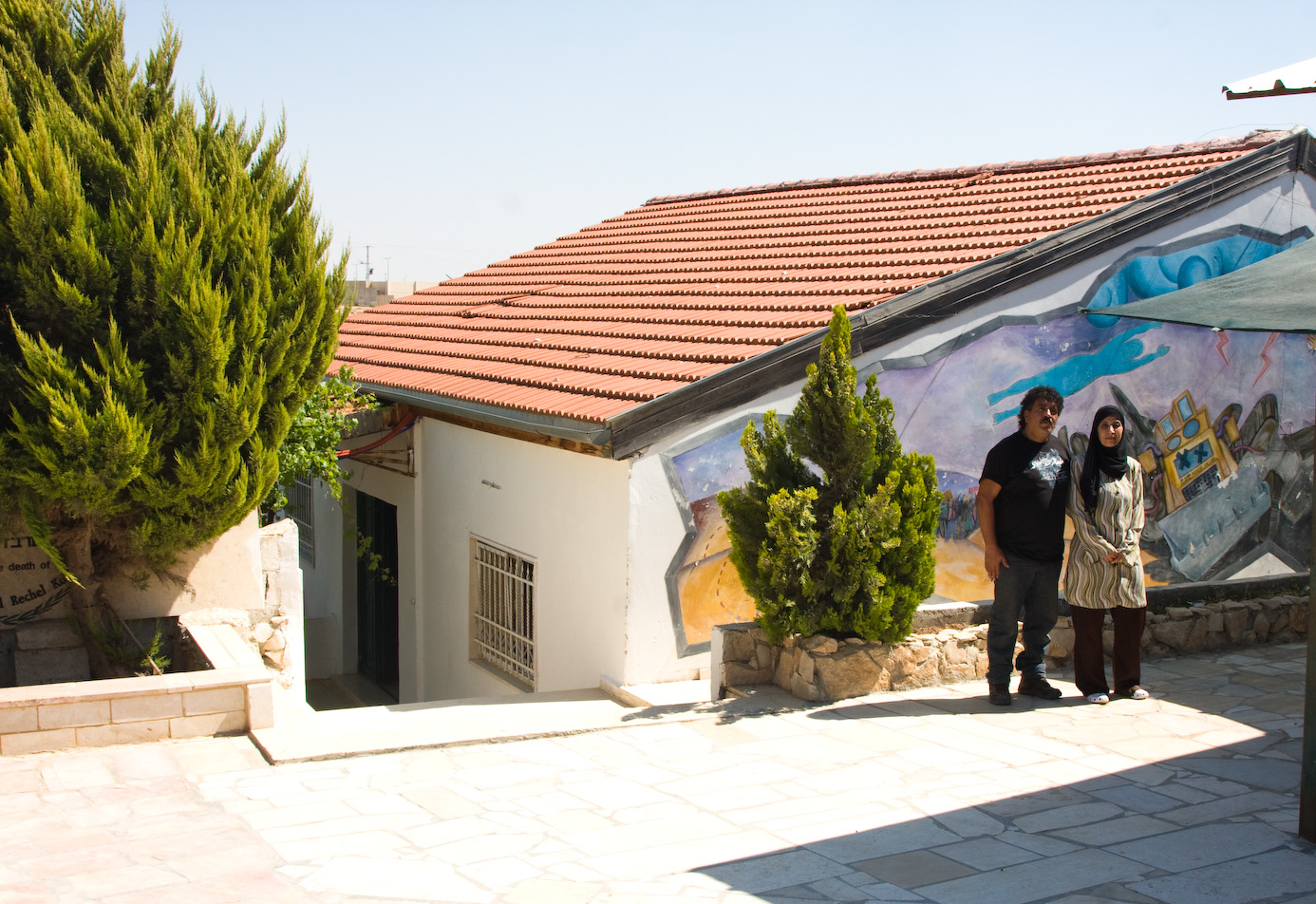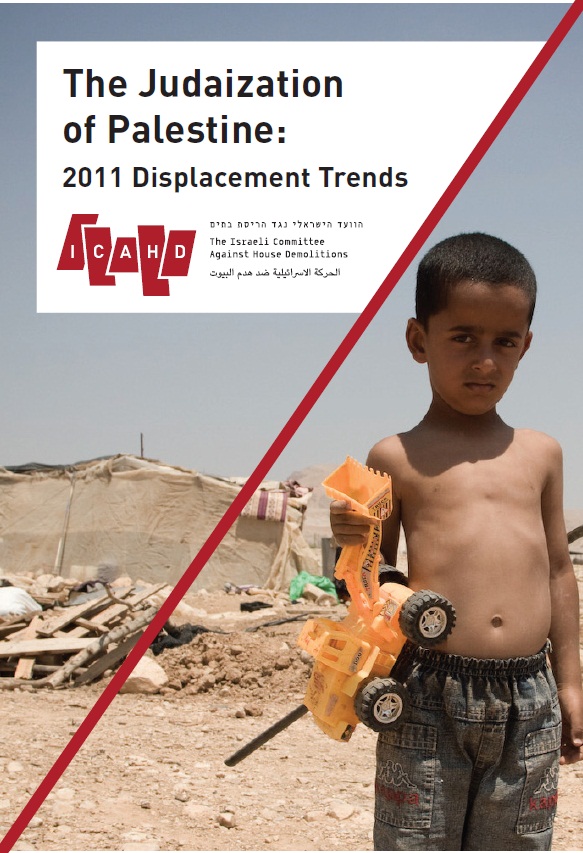Uri
Avnery
January 7, 2012
The Stolen
War
IS
THERE no limit to the villainy of Hamas? Seems there isn’t.
This
week, they did something quite unforgivable.
They
stole a war.
FOR SOME weeks now, our almost new
Chief of Staff, Benny Gantz, has been announcing at every possible opportunity
that a new war against the Gaza
Strip is inevitable. Several commanders of the troops around the Strip have
been repeating this dire forecast, as have their camp-followers, a.k.a.
military commentators.
One of these comforted us. True, Hamas
can now hit Tel Aviv with their rockets, but that will not be so terrible,
because it will be a short war. Just three or four days. As one of the generals
said, it will be much more “hard and painful” (for the Arabs) than Cast Lead I,
so it will not last for three weeks, as that did. We shall all stay in our
shelters – those of us who have shelters, anyway – for just a few days.
Why is the war inevitable? Because of
the terrorism, stupid. Hamas is a terrorist organization, isn’t it?
But along comes the supreme Hamas
leader, Khaled Mash’al, and declares that Hamas has given up all violent
action. From now on it will concentrate on non-violent mass demonstrations, in
the spirit of the Arab Spring.
When Hamas forswears terrorism, there
is no pretext for an attack on Gaza.
But is a pretext needed? Our army will
not let itself be thwarted by the likes of Mash’al. When the army wants a war,
it will have a war. This was proved in 1982, when Ariel Sharon
attacked Lebanon,
despite the fact that the Lebanese border had been absolutely quiet for 11
months. (After the war, the myth was born that it was preceded by daily
shooting. Today, almost every Israeli can “remember” the shooting – an
astonishing example of the power of suggestion.
WHY DOES the Chief of Staff want to
attack?
A cynic might say that every new Chief
of Staff needs a war to call his own. But we are not cynics, are we?
Every few days, a solitary rocket is
launched from the Gaza Strip into Israel. It
rarely hits anything but an empty field. For months, now, no one has been hurt.
The usual sequence is like this: our
air force carries out a “targeted liquidation” of Palestinian militants in the
strip. The army claims invariably that these specific “terrorists” had intended
to attack Israelis. How did the army know of their intentions? Well, our army
is a master thought reader.
After the persons have been killed,
their organization considers it its duty to avenge their blood by launching a
rocket or a mortar shell, or even two or three. This “cannot be tolerated” by
the army, and so it goes on.
After every such episode, the talk
about a war starts again. As American politicians put it in their speeches at
AIPAC conferences: “No country can tolerate its citizens being exposed to rockets!”
But of course, the reasons for Cast
Lead II are more serious. Hamas is being accepted by the international
community. Their Prime Minister, Isma’il Haniyeh, is now traveling around the
Arab and Muslim world, after being shut in Gaza – a kind of Strip-arrest – for four
years. Now he can cross into Egypt
because the Muslim Brotherhood, Hamas’ parent organization, has become a major
player there.
Even worse, Hamas is about to join the
PLO and take part in the Palestinian government. High time to do something
about it. Attack Gaza,
for example. Compel Hamas to become extremist again.
NOT CONTENT with stealing our war,
Mash’al is carrying out a series of more sinister actions.
By joining the PLO, he is committing
Hamas to the Oslo agreements and all the other
official deals between Israel
and the PLO. He has announced that Hamas accepts a Palestinian state within the
1967 borders. He has let it be known that Hamas would not contest the
Palestinian presidency this year, so that the Fatah candidate – whoever that
may be – would be elected practically unopposed and be able to negotiate with Israel.
All this would put the present Israeli
government in a difficult position.
Mash’al has some experience in causing
trouble for Israel.
In 1977, the (first) Netanyahu government decided to get rid of him in Amman. A team of Mossad
agents was sent to assassinate him in the street by spraying his ear with an
untraceable poison. But instead of doing the decent thing and dying quietly from a mysterious cause, like
Yasser Arafat, he let his bodyguard chase the attackers and catch them.
King Hussein, Israel’s longstanding
friend and ally, was hopping mad. He presented Netanyahu with a choice: either
the agents would be tried in Jordan
and possibly hanged, or the Mossad would immediately send the secret antidote
to save Mash’al. Netanyahu capitulated, and here we have Mash’al, very much
alive and kicking.
Another curious outcome of this
misadventure: the king demanded that the Hamas founder and leader, the
paralyzed Sheik Ahmad Yassin, be released from Israeli prison. Netanyahu
obliged, Yassin was released and assassinated by Israel seven years later. When his
successor, Abd al-Aziz Rantissi, was assassinated soon after, the path was
cleared for Mash’al to become the Hamas chief.
And instead of showing his gratitude,
he now confronts us with a dire challenge: non-violent action, indirect peace
overtures, the two-state solution.
A QUESTION: why does our Chief of
Staff long for a little war in Gaza, when he
could have all the war he desires in Iran? Not just a little operation,
but a big war, a very very big war.
Well, he knows that he cannot have it.
Some time ago I did something no
experienced commentator ever does. I promised that there would be no Israeli
military attack on Iran.
(Nor, for that matter, an American one.)
An experienced journalist or
politician never makes such a prediction without leaving a loophole for
himself. He puts in an inconspicuous “unless”. If his forecast goes awry, he
points to that loophole.
I do have some experience – some 60 or
so years of it – but I did not leave any loophole. I said No War, and now
General Gantz says the same in so many words. No Tehran,
just poor little Gaza.
Why? Because of that one word: Hormuz.
Not the ancient Persian god Hormuzd,
but the narrow strait that is the entrance and exit of the Persian Gulf,
through which 20% of the world’s oil (and 35% of the sea-borne oil) flows. My
contention was that no sane (or even mildly insane) leader would risk the
closing of the strait, because the economic consequences would be catastrophic,
even apocalyptic.
IT SEEMS that the leaders of Iran were not
sure that all the world’s leaders read this column, so, just in case, they
spelled it out themselves. This week they conducted conspicuous military
maneuvers around the Strait of Hormuz,
accompanied by the unequivocal threat to close it.
The US responded with vainglorious
counter-threats. The invincible US
Navy was ready to open the strait by force, if needed.
How, pray? The mightiest multi-billion
aircraft carrier can be easily sunk by a battery of cheap land-to-sea missiles,
as well as by small missile-boats.
Let’s assume Iran starts to
act out its threats. The whole might of the US air force and navy is brought to
bear. Iranian ships will be sunk, missile and army installations bombed. Still
the Iranian missiles will come in, making passage through the strait
impossible.
What next? There will be no
alternative to “boots on the ground”. The US army will have to land on the
shore and occupy all the territory from which missiles can be effectively
launched. That would be a major operation. Fierce Iranian resistance must be
expected, judging from the experience of the eight-year Iraqi-Iranian war. The
oil wells in neighboring Saudi Arabia
and the other Gulf states
will also be hit.
Such a war would go far beyond the
dimensions of the American invasions of Iraq
or Afghanistan, perhaps even
of Vietnam.
Is the bankrupt US up to it?
Economically, politically and in terms of morale?
The closing of the strait is the
ultimate weapon. I don’t believe that the Iranians will use it against the
imposition of sanctions, severe as they may be, as they have threatened. Only a
military attack would warrant such a response.
If Israel attacks alone – “the most
stupid idea I ever heard of,” as our former Mossad chief put it – that will
make no difference. Iran
will consider it an American action, and close the strait. That’s why the Obama
administration put its foot down, and hand-delivered to Netanyahu and Ehud
Barak an unequivocal order to abstain from any military action.
That’s where we are now. No war in Iran. Just the
prospect of a war in Gaza.
And along comes this evil Mash’al and
tries to spoil the chances of that, too.


















